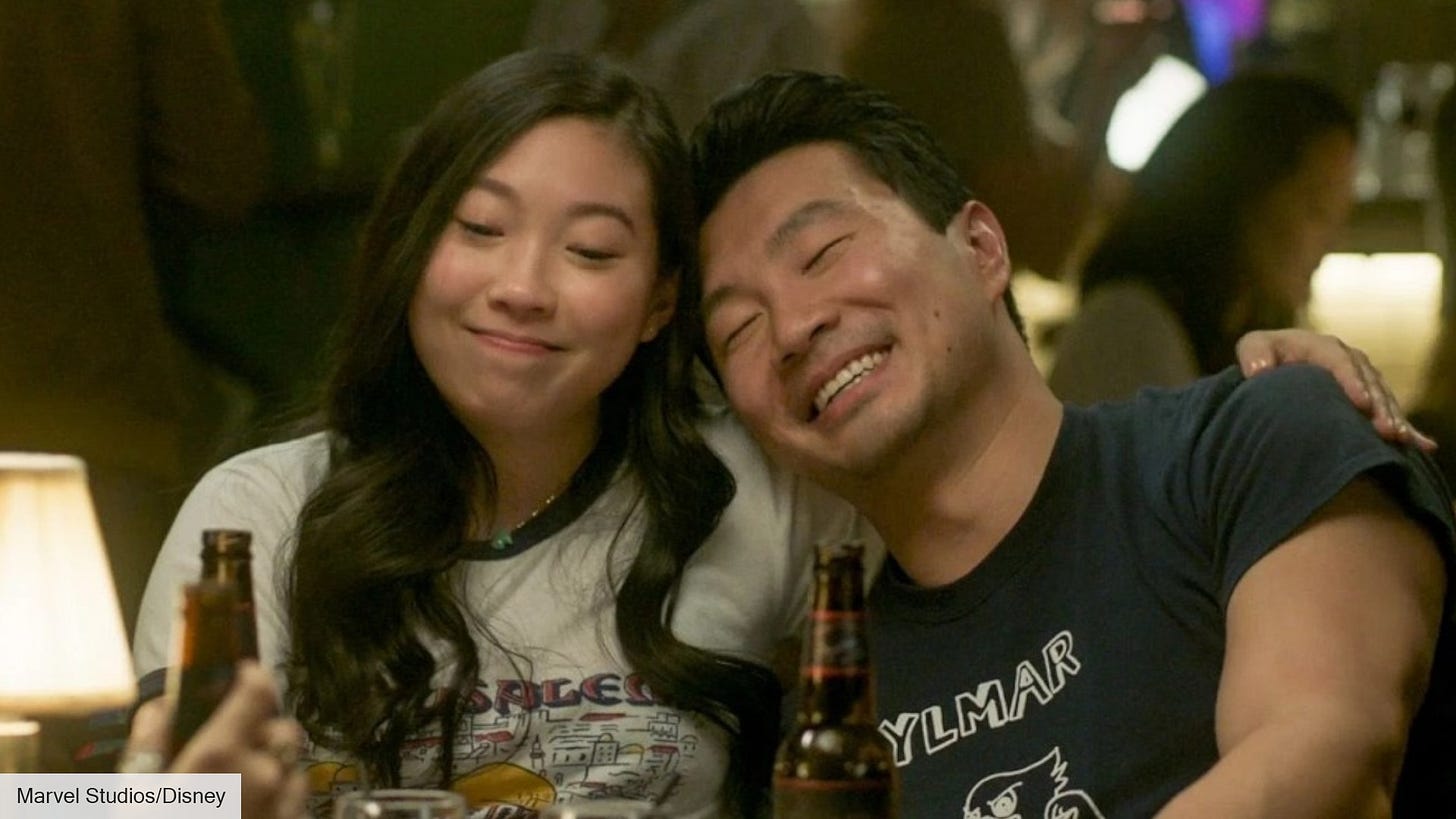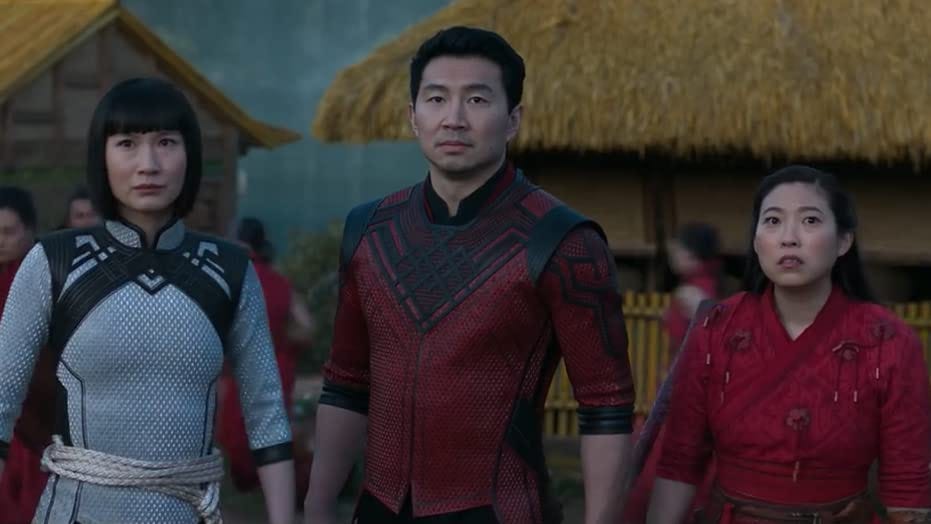Shang-Chi Fights Heterosexual Expectations
and loses.
Early in Shang-Chi and the Legend of the Ten Rings, the movie clumsily gestures at romance. Shang-Chi (Simu Liu) is picking up his co-worker Katy (Awkwafina) to go to work parking cars. Before he can get out the door, Katy’s grandmother asks him, as grandmother’s do, when he’s going to propose. Shang-Chi responds, with a nervous laugh, that he and Katy are just friends.
The scene is supposed to signal you that Shang-Chi and Katy are not just friends. Instead, though, it inadvertently underlines the fact that, you know, they really seem like they’re just friends.
Simu Liu and Awkwafina are both extremely attractive, charismatic people. Their characters share fun patter and clearly enjoy riffing off of and hanging out with each other at work, at breakfast, and at karaoke. But they have as little romantic chemistry as it is possible for two romantic leads to have. When they hold hands at the end of the film to indicate that they are now maybe together, you understand why director Destin Daniel Cretton avoided the traditional kiss at the credits. Even minimal couple contact feels like a grotesque social faux pas. You want to look away.
The movie, like Katy’s grandmother, wants there to be a heterosexual romance. But the movie itself karate blocks the very idea with surprising determination. Which makes you wonder—maybe the movie is trying to tell us that Shang-Chi, or Katy, or both, are gay?
Homophobic Supervillain Parents
Interestingly, if Shang-Chi is gay, the movie gains a good deal of emotional and thematic resonance. Shang-Chi’s father Xu Wenwu (Tony Leung) is a criminal mastermind and ancient sorcerer, who callously trains Shang-Chi from an early age to avenge his mother’s death. Shang-Chi eventually rebels; he flees to America when he is 14 to try to make a new life for himself.
Shang-Chi doesn’t want to fit himself into his father’s violent, narrow definitions of masculinity, so he runs away from home. That’s a narrative that fits the lives of many queer children. LGBT youth between the ages of 13 and 17 are 120% more likely to be homeless than cis straight peers.
Wenwu in the movie is presented as sexist; he ignores and refuses to train his daughter, Xialing (Meng’er Zhang). It would make sese that he’d also be hostile towards a gay son. It’s easy to imagine the sexist, violently patriarchal father buying into homophobic stereotypes about the weakness or cowardice of gay men. Shang-Chi’s defiance of his father, and ultimate victory, could then be a refutation of those stereotypes, just as his sister’s plot arc is presented as a blow for feminist equality.
It wasn’t to be though. No matter how much sense a gay male Shang-Chi would make, the MCU wasn’t going to go there. Hollywood executives like to blame their reticence on LGBT issues on the overseas market. Even if that’s overstated, they were unlikely to have the first gay lead be the one in the film set in China.
Not Quite Ready to Fight Ron Yet
The MCU has been slowly moving towards greater LGBT representation. In the Disney+ show Loki, Loki (Tom Hiddleston) and Sylvie (Sophia Di Martino) are explicitly bisexual. More, they are pursued by a narrow-minded multi-dimensional police force because they vary from established norms, which is to say, they are arguably being targeted because they are queer.
The television shows have a smaller, less global audience, and have in general been more adventurous and less formulaic than the films. But The Eternals on the big-screen this year also features a gay male couple as important supporting characters. So it’s not impossible to imagine that —even despite homophobic homegrown ghouls like Ron DeSantis—there could be a LGBT lead in an MCU film in the near future. Shang-Chi was a missed opportunity though, and a reminder that heterosexual expectations—from Grandma or Hollywood—limit the stories you can tell.




That makes so much sense! I would absolutely watch that version of Shang Chi (and I love the phrase, "Homophobic Supervillain Parents").
But . . . I think I'm also okay with that as a _reading_ but not necessarily canon. I haven't really been following the character, but I have read the new books by Gene Luen Yang, and the character is definitely presented as being romantically clueless and not good at relationships -- and that's also a familiar trope of comic book characters.
I think you are correct when you wrote (in your post on _Sovereign_), "Critics and fans have argued that this can be read as a metaphor for queerness, or as a parallel to the way that LGBT people are treated. That’s true. But the metaphor resonates a lot more powerfully when the superhero in question is actually queer."
But I'd be happy if that meant Kristen Stewart getting a chance to play a gay superhero . . .